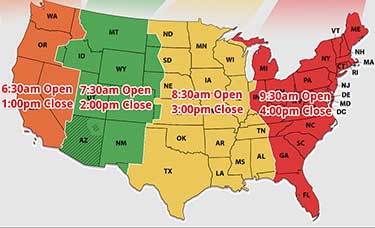Introduction
When it comes to investing in the stock market, timing is crucial. Many investors often find themselves wondering, “Is the stock market open today?” In this comprehensive guide, we will explore the intricacies of the stock market’s operating hours, including holidays, weekends, and after-hours trading. By the end of this article, you will have a clear understanding of when you can buy and sell stocks and what factors might influence these trading hours.
The Regular Trading Hours
1. Weekdays – Monday to Friday
The stock market typically operates on regular trading hours from Monday to Friday. These hours are further divided into key sessions:
a. Pre-market Hours
- Pre-market trading begins as early as 4:00 AM EST.
- It allows investors to place orders before the official opening of the market.
b. Regular Trading Hours
- The primary trading session runs from 9:30 AM to 4:00 PM EST.
- This is when most of the trading activity occurs.
c. After-hours Trading
- After-hours trading extends from 4:00 PM to 8:00 PM EST.
- It provides opportunities for trading outside of regular hours but comes with additional risks.
2. Weekends – Saturday and Sunday
The stock market is closed on weekends, so you cannot trade stocks on Saturdays or Sundays. However, there are exceptions for certain overseas markets that might operate on weekends due to time zone differences.
Holidays and Market Closures
3. Federal Holidays
The stock market observes several federal holidays when it remains closed. Some of the major holidays include:
- New Year’s Day
- Martin Luther King Jr. Day
- Presidents’ Day
- Memorial Day
- Independence Day
- Labor Day
- Thanksgiving Day
- Christmas Day
4. Partial Trading Days
On certain holidays, such as Christmas Eve and New Year’s Eve, the stock market may close early. These partial trading days often have reduced trading hours compared to regular trading days.
Factors Affecting Trading Hours
5. Market Volatility
In times of extreme market volatility or economic events, the stock market may suspend trading temporarily or experience shortened trading hours to prevent panic selling or buying.
6. Extended Hours
Some brokerage firms offer extended hours trading, allowing investors to trade before and after regular market hours. However, it’s essential to be aware of the additional risks and limitations associated with extended hours trading.
Conclusion
In conclusion, understanding the stock market’s operating hours is vital for any investor. Regular trading hours occur on weekdays from 9:30 AM to 4:00 PM EST, while weekends and federal holidays are typically non-trading days. Factors like market volatility can also influence trading hours, so it’s essential to stay informed.
For more information and to stay updated on the stock market’s status, always check with your brokerage or financial news sources. Happy investing!
FAQs
1. Can I trade stocks on weekends?
No, the stock market is closed on weekends. You can only trade on weekdays during regular trading hours.
2. Are stock market holidays the same every year?
No, the dates of stock market holidays may vary from year to year. It’s essential to check the holiday calendar for the most up-to-date information.
3. What happens if I place an order during after-hours trading?
If you place an order during after-hours trading, it will be queued and executed when the market reopens during regular trading hours.
4. How can I monitor market closures and holidays?
You can monitor market closures and holidays through financial news websites, your brokerage’s website, or by consulting a financial calendar.
5. Are there any risks associated with after-hours trading?
Yes, after-hours trading can be riskier due to lower liquidity and wider spreads. It’s crucial to be cautious when trading during these hours.
